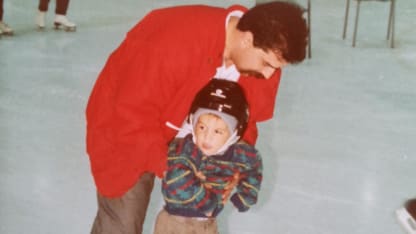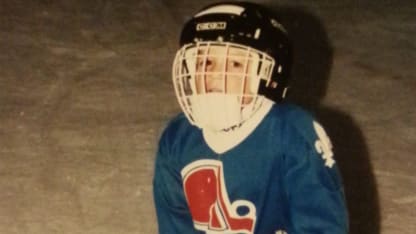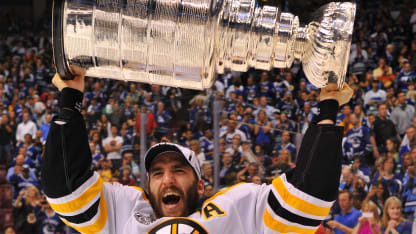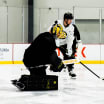By the end of the year, I was actually up on my feet and skating - or at least trying. I continued to improve and felt by that point I was doing just fine. (Maybe I was actually horrible. Who knows?)
But as a kid, practice can get a little boring. Playing games is what everyone wants to do. And that is really where my love for hockey began to take off.
To put it simply, over those next five years, hockey became my passion. Which brings me to where I am today.
It is hard to believe that on Tuesday night against the New York Islanders I will play in my 1,000th National Hockey League game. Reaching the NHL was, of course, always my dream and I knew in the back of my head that if I worked hard enough I would get there some day. It's pretty special that all of that hard work paid off.
That's where all those days in Quebec come back into play.
My career really elevated to another level when I was 16 and got drafted by Acadie-Bathurst of the Quebec Major Junior Hockey League. By that time, I was doing everything in my power to improve and get better. I was always trying to have fun and enjoy, but once I reached that point, that's when I kind of made some sacrifices - although, to me, they weren't really sacrifices at all.
But I did cut down on some of the typical teenage stuff - hanging out with my friends, going to dinners, etc. - and made sure to get to bed early and eat all the right things. I wanted to be disciplined.
And, again, I couldn't have done it without the support of my family. My parents had a tremendous impact on my ability to pursue hockey by making so many sacrifices of their own.
And while my brother was dealing with his own hockey career and trying to be the best that he could be and play on elite teams, he was also my biggest fan.
He would always take the time to work on things with me. He would come to my games and practices and really just be an amazing best friend and big brother. He had a huge impact that way throughout my youth - and even when I got here to Boston, which is where I met another one of my biggest influences.






















